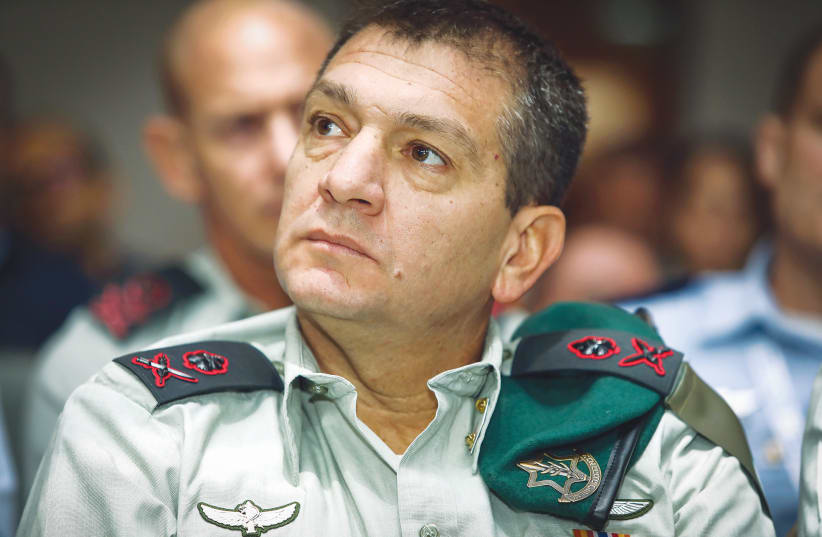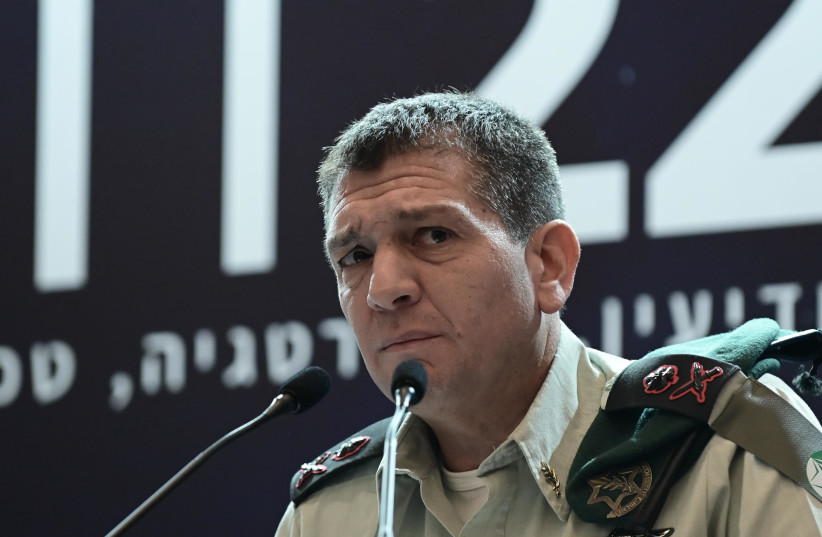There is something to be said for all of the IDF commanders who have resigned during the war.
It is unavoidably disappointing to see so many high-ranking officials dropping day by day and knowing that no matter what, things will be passed along to someone a little less experienced and a little less adapted.
At the same time, it is pretty refreshing to see people – and I hate to say it, but notably men – in leadership roles in Israel taking responsibility for their failures.
And indeed, when it comes to Israel’s defense establishment, October 7 was the failure of the century.
Resigning and taking responsibility
This week, IDF Military Intelligence Directorate Chief Maj.-Gen. Aharon Haliva announced that he was resigning after over 38 years of serving his country. In his resignation letter, he states that he would like to take responsibility for what happened on October 7 and promises to do his best to complete as many of the war’s goals as possible.
His retirement was not unexpected; in fact, already in November, he was seen from within the Intelligence Division as something of a “sitting duck.”
IDF Intelligence Analysis Chief Brig.-Gen. Amit Saar also resigned recently. However, he was doing so for personal, medical reasons.
Nevertheless, his resignation was imminent, as some considered him to be the official most responsible for not foreseeing the October 7 invasion by Hamas.
Without his unexpected cancer diagnosis, Sa’ar was going to resign in June over his failures surrounding the massacre. After all, intelligence analysis is the primary place of failure, which massively underestimated the probability as well as the scope of the impending attack by Hamas.
This wave is merely the latest in a series of previous and impending resignations due to across-the-board failures surrounding October 7.
In February, an IDF intelligence officer with the mid-level rank of major from the Palestinian analysis branch became the first one to resign over the failure to anticipate and warn of Hamas’s invasion.
One month later, defense officials said that IDF Chief of Staff Lt.-Gen. Herzi Halevi intends to announce his resignation from his position sometime between September and December and, until that time, to finish internal investigations regarding the war and present them to the relevant government officials.
This approach, taken by so many of these experienced commanders, is one that – despite the massive failure that we saw on October 7 – has earned my respect. These are people who look upon the devastation and panic that struck our country and bow their heads in shame – justifiably so.
The same, however, cannot be said for the Israeli government.
PRIME MINISTER Benjamin Netanyahu admitted that everyone, “myself included,” will have to be investigated and ultimately held accountable, in a press conference held a little over two weeks after the October 7 massacre.
But in every interview he has conducted with the international media afterward, he has repeatedly deflected blame, saying that it will be determined after the war.
The coalition has consistently maintained this messaging, this deflection, to keep its audience distracted as it desperately searches for who to blame. Indeed, many pointed at the IDF.
National Security Minister Itamar Ben-Gvir – a mere three days after hundreds were kidnapped, over a thousand murdered, and thousands injured on October 7 – reiterated that he blames Benny Gantz and Gadi Eisenkot for the massacre.
Shameful does not even begin to describe this behavior – which, since October, has become a regularity, with the government doing everything in its power to sweep any potential blame they may have under the rug thinking that no one will notice.
Thankfully, Israelis do not have a short memory. Throughout Judaism’s vast history, we have learned to remember.
This does not mean that the government needs to fall and have one member of the Knesset resign at a time. Rather, if it wants to save face – not now, but in the history books that will look down on them with disdain – it must bring about elections with the understanding that the crisis that has befallen the Israeli people has led them to lose all hope and trust in their government.
Politicians must look to the IDF generals who took to heart the catastrophe that was October 7 and truly absorb what it means to have been a part of the systemic failure; this sense of responsibility, of accountability, is what must bring them to encourage elections.
If they do not do so, history – with its eyes on them, as Lin-Manuel Miranda wrote – will remember them as having failed their country and instead trying to save themselves by any means necessary.
The writer is deputy editor-in-chief of The Jerusalem Post.

